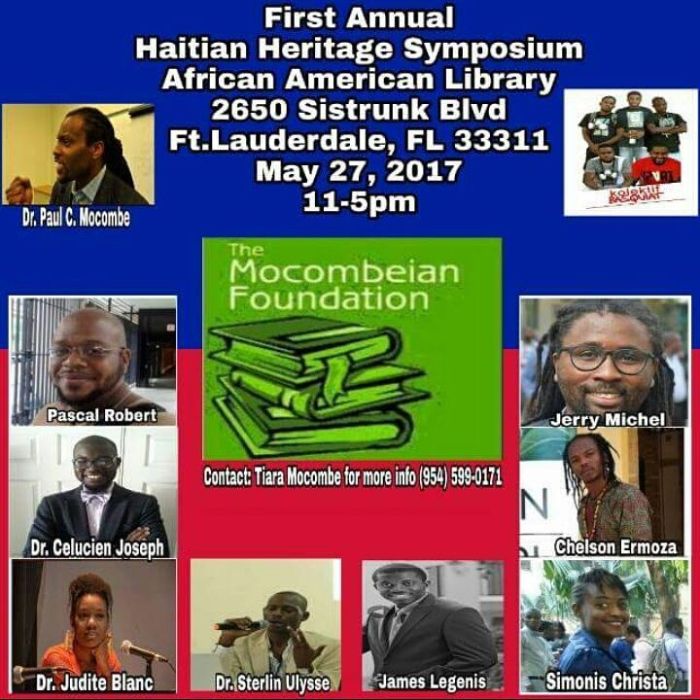Five Theses on Feminism
1. Feminism does not mean the feminist has to hide her weaknesses before men. To have weakness is inherent to both men and women; in other words, to be human means to be weak. The human nature necessitates that we experience weakness as part of the human experience and reality.
We learn, grow, and mature through our weaknesses, and can become more fulfilled as we accept weaknesses as shapers of our feminist identity.
In the same line of thought, as part of the social construction project of masculinity, as an early age, little boys are trained and men correspondingly are taught to devoid themselves of any public emotion or feminist tendencies—whatever that means. We teach men to be tough, brave, emotionless, and insensitive to pain and suffering. This is nothing but a defective form of masculinity.
2. Feminism is not the antithesis of motherhood or should it be equivalent to childlessness. There should not be a tension between motherhood and feminist self-agency and self-expression. A mother can be a fierce feminist just like a feminist can be a nurturing, loving, and relational mother.
On the other hand, not all women are called to be mothers in the same way not all men are called to be fathers. Motherhood is a choice the same way some men choose not to be fathers. Genuine motherhood is a commitment in the same way authentic fatherhood is an intentional commitment.
3. Feminism does not mean the conscious feminist has to hide the emotional and nurturing side of her life and identity as a woman (Yes, men can be/are emotional and nurturing subjects.)
In other words, being a feminist does not mean one has to “block in public” her feelings, emotions, or passion. Feminism does not mean devoid of passion nor does it equate only with reason. Both men and women are individuals of passion and reason, and we complement each other through various means of passion and reason.
4. Feminism does not mean independence and autonomy from men in the same way masculinity should convey male autonomy and independence from women. Men and women become more effective in their pursuits and endeavors when they complement each other and live in relation to each other.
True feminism just like authentic masculinity is a life of interconnectedness, mutual reciprocity, and interdependence. True feminism (as masculinity should be) is both an egalitarian and complementarian conviction and sets of practices.
5. Feminism is not the antithesis of masculinity. Masculinity is not equivalent to patriarchy nor should manhood be a hindrance to feminist expression and sensibility. To be a feminist does not necessarily mean one has to get involved in constant battles with men in order to display courage and resistance. Some men in society are also victims of the patriarchal system. (Patriarchy is not a monolithic order nor is it a unified system. There are different forms of patriarchy.) However, women suffer more from this male-rule society, and men in general benefit from our patriarchal order.
By contrast, men and women need to work together to deracinate systemic and structural oppression and any form (sexual, verbal, physical, emotional, etc.) of violence that engender tension between the two sexes or the forces that foster enmity between the male and female gender.
* I’m still trying to frame my thought around the subject of feminism and its complexity as both a theoretical framework and sets of practices. I also know my five theses are grounded on a heterosexual worldview. That does not mean I have excluded the LGBTQ community in this discourse nor is it intentional to undermine the human dignity that is inherent to the gay, the lesbian, the transgender or the queer individual.
Moreover, I confess my own articulation of these theses are products of my own patriarchal practice, ideology, and conviction. I’m on this journey to learn, to be changed, and to alter my ideas or modify my perspective (s) if deems necessary. Hence, I’m asking my Feminist friends and other critics to be patient with me on this journey.
————————————————————————
Some Recommended Texts
1. Feminist Theory
• In Other Worlds: Essays in Cultural Criticism, and The Postcolonial Critic: Interviews, Strategies, Dialogue by Gayatri Spivak
• Gender Trouble, and the Psychic of Power by Judith Butler
• The Reproduction of Mothering by Nancy Chodorow
• The Dialectic of Sex by Schulamith Firestone
• The Feminine Mystique by Betty Friedan
• Psychoanalysis and Feminism by Juliet Mitchell
• The Politics of Reproduction by Mary O’Brien
• Woman, Native, Other: Writing, Postcoloniality and Feminism by T. Minh Ha Trinh
• In a Different Voice: Psychological Theory and Women’s Development by Carol Gilligan
• A Vindication of the Rights of Woman by Mary Wollstonecraft
• The Erotics of Talk: Women’s Writing and Feminist Paradigm by Carla Caplan
• Feminist Postcolonial Theory: A Reader edited by Reina Lewis and Sara Mills
2. Black Feminism and Black Feminist Theory
- A Voice in the Wilderness by Julia Cooper
- “A Raisin in the Sun,” and To Be Young, Gifted, and Black by Lorraine Hansberry
• Their Eyes Were Watching God by Zora Neale Hurston
• Women, Race & Class by Angela Y. Davis
• Color Purple by Alice Walker
• The Bluest Eye, Beloved, Tar Baby by Toni Morrison
• For Colored Girls Who Have Considered Suicide When The Rainbow is Enuf by Ntozake Shange
• Sister Outsider by Audre Lorde
• Feminism is for Everybody by Bell Hooks
• Ain’t I A Woman? Black Women & Feminism by bell hooks
• Black Feminist Thought: Knowledge, Consciousness, and the Politics of Empowerment by Patricia Hill Collins
• Divided Sisters: Bridging the Gap Between Black Women and White Women by Midge Wilson and Kathy Russell
• We Should All be Feminists by Chimamanda Ngozi Adichie
• Ain’t I a Woman?: Black Women and Feminism by Bell hooks
• In Search of Our Mothers’ Gardens: Womanist Prose, and The Color Purple by Alice Walker
• Women, Race, & Clas, and Women, Culture & Politics (1990) by Angela Davis
*Also, the literature on Black Womanist and Feminist Hermeneutics—religious, biblical, and theological–is quite substantial and very rich!




